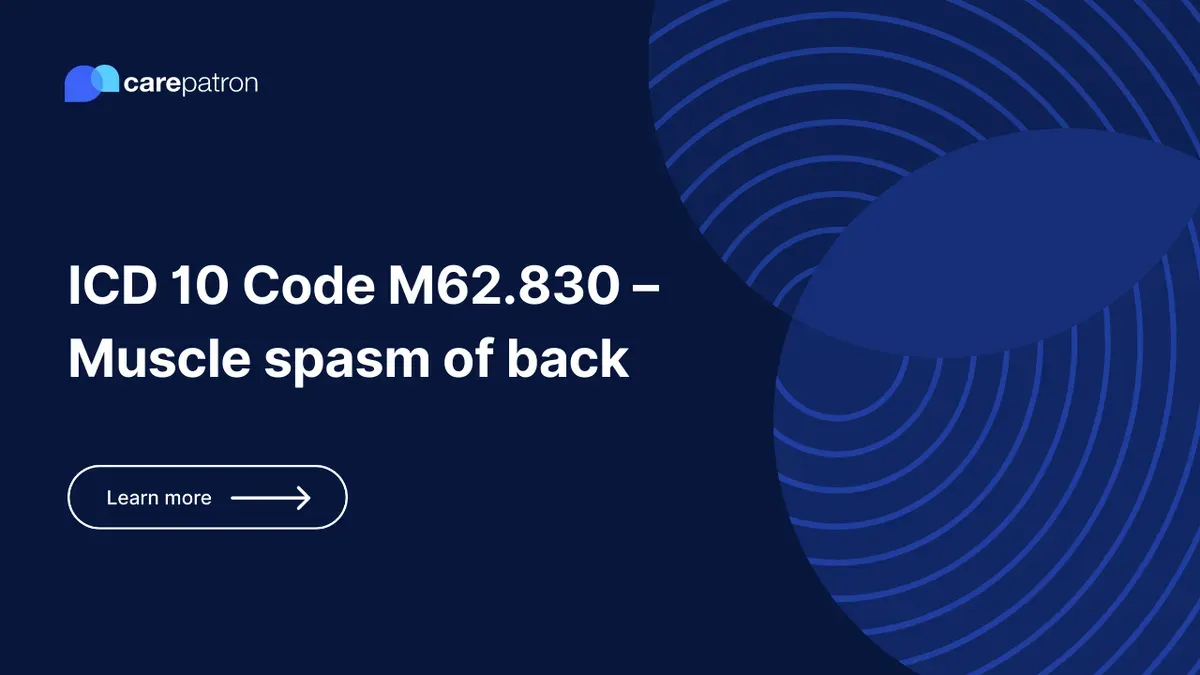
M62.830 – Muscle spasm of back
M62.830: Muscle spasm of back. Find information and resources on this ICD-10-CM diagnosis code for back muscle spasms.
Use Code
Commonly asked questions
The diagnosis code M62.830 should be used when documenting and coding cases involving muscle spasms in the back region.
Common treatments for muscle spasms of the back (M62.830) may include physical therapy, medications such as NSAIDs, heat or cold therapy, rest or activity modification, and in severe cases, surgery.
Diagnosis code M62.830 refers to muscle spasms occurring in the back region. Healthcare professionals use it to classify and document cases involving muscle spasms specifically affecting the back.
EHR and practice management software
Get started for free
*No credit card required
Free
$0/usd
Unlimited clients
Telehealth
1GB of storage
Client portal text
Automated billing and online payments
